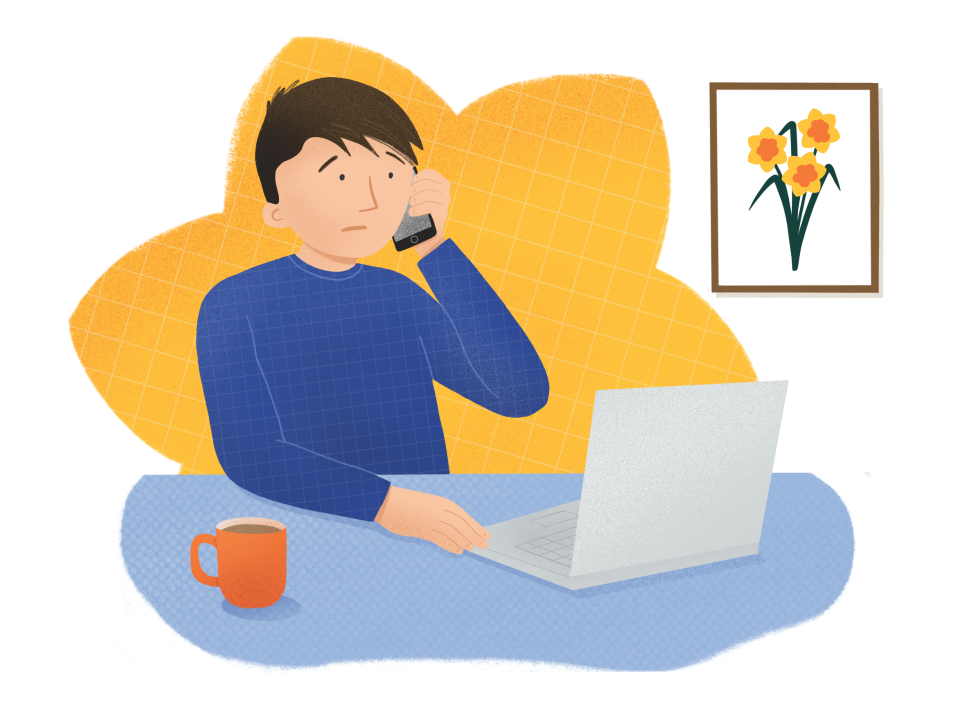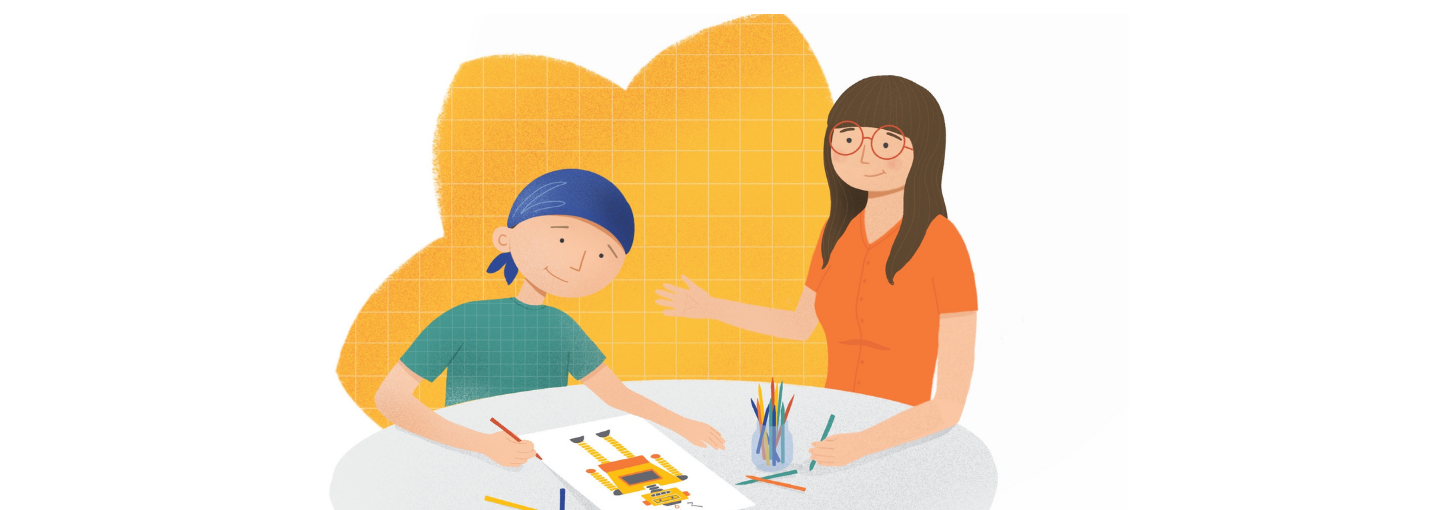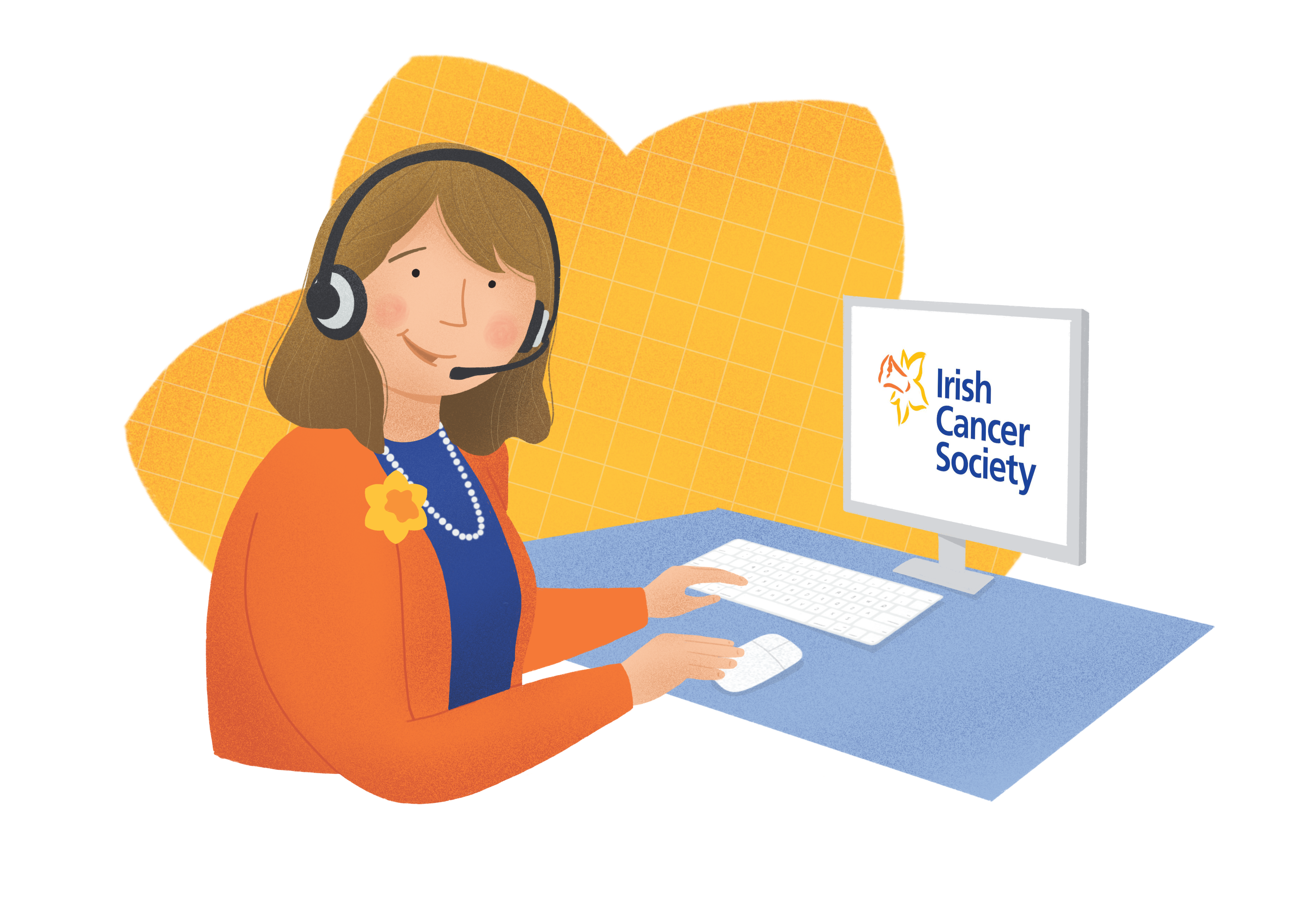Coping practically and emotionally

Work together with friends and family
Try to share the demands of the new situation with your partner if you have one, friends and family. Involving other people can help you cope, and often people who care about you and your child will be glad to feel they are involved and helping. Some ways they can help include:
- Listening to your concerns, fears and needs
- Going to medical appointments with you – to ask questions and help you remember the information
- Doing housework and running errands
- Giving you lifts or doing school runs
- Looking after the children so you can attend appointments, or just take a break
Get information about your child’s illness and treatment
It may help to find out more about your child’s illness, treatment and possible side-effects. Your doctors and nurses are the best people to talk to, but you can also get information from booklets, leaflets and online. Remember that online information may not be reliable. Talk to the doctors and nurses about where to look.
We have a factsheet to help you get reliable information online. The best advice is to use a website by a recognised organisation such as the Irish Cancer Society or the Children’s Cancer and Leukaemia Group (UK site).
If a lot of information about your child’s illness makes you anxious, you could ask a friend or family member to get the information for you and tell you anything important.
Many parents find it useful to write out a list of their questions at home to bring with them to the hospital. Staff will do their best to answer them honestly but remember not all questions can be answered straight away.
Talk to your specialist nurses
The nurses at the hospital can answer your questions but can also help if you’re struggling with your emotions or your child is finding it hard to cope. They have supported many parents and will be able to do the same for you. They can also tell you about helpful services at the hospital for you and your child. For example, complementary therapies, music therapy, play specialist.
Ask to talk to a medical social worker
Medical social workers are trained to help you and your family with your social issues and emotional and practical needs. They can also give advice on social welfare benefits, financial matters and practical supports and services available to you and other family members, such as brothers and sisters.
Talk to our cancer nurses
Our nurses – including our Children’s Cancer Nurse – can support you and help you to find services to help. You can call our Support Line on Freephone 1800 200 700, visit a Daffodil Centre or email supportline@irishcancer.ie
Talk to a parent whose child has been through a cancer diagnosis
Our parent peer-to-peer support programme can put you in contact with a trained parent volunteer who understands what you’re going through. Call our Support Line for more information in 1800 200 700 or email info@irishcancer.ie
Contact your local cancer support centre
Many local cancer support centres offer counselling services, creative therapies and practical support for children with cancer and their families. Find your local children's cancer support centre here.
Use the practical and financial supports available
Looking after a sick child can cause unexpected expenses and difficulties. Often parents living outside the Dublin area face the added difficulties of travel and having to organise the care of their families for longer periods while away. The medical social worker will be able to give you advice about benefits to which you may be entitled and other financial supports, such as grants.
One such grant you may be entitled to is the Irish Cancer Society's Children's Fund. This is a one-off grant of €3,000 that is not means tested. It is to help with the unexpected expenses that a diagnosis brings, such as travel expenses to cancer treatment appointments, heating bills and childcare costs. To qualify, the child:
- Must be under the age of 18
- Must have been diagnosed with cancer and currently be receiving treatment
- Must live permanently in Ireland
Ask for help from family, friends and neighbours in coping with your new routine. They may be happy to prepare a meal, do a school run, or help with laundry.
Look after yourself
Obviously your focus will be on your child during their illness, but your physical and mental health are important too at this stressful time and you will need and deserve lots of care and support. Looking after yourself will help you to cope and care for your child.
- Take time out
Take a break at times when your child needs you less. Take opportunities to spend time by yourself, with your partner, family or friends and with your other children. Get a babysitter occasionally so that you can pursue your own interests, or go out for a relaxing few hours. It will do you good to take a break from hospitals and treatment for a while and your sick child will enjoy the company of someone outside the family. - Live a healthy lifestyle
Eat well, take some exercise and try to get enough sleep. Don’t ignore any health problems of your own. - Mind your mental health
Having a sick child is hugely stressful in lots of ways. Taking time to process your emotions or talking to a friend or loved one can be very helpful. Free one-to-one counselling is available through our affiliated cancer support centres. If you’re very anxious, feeling overwhelmed or finding it hard to cope, let your GP know. You can also call our Support Line to talk to a cancer nurse in confidence. Call 1800 200 700 or email info@irishcancer.ie
Find out about children’s charities and support groups
They offer a range of services, such as:
- Help with transport and accommodation
- Cancer information
- Counselling
- Financial support
- Medical equipment
- Weekend breaks
- Complementary therapies
- Play therapy
- Social events and outings
- Parent support meetings
- Children and teen workshops
- Respite
- Support at home
- Support for brothers and sisters
See a list of helpful organisations here.
The Irish Cancer Society also has a range of services for families affected by a children’s cancer diagnosis .
Local support
Across the country, the Irish Cancer Society works with cancer support centres to help provide services and support for children and adolescents with a cancer diagnosis.

For more information
Phone
1800 200 700




